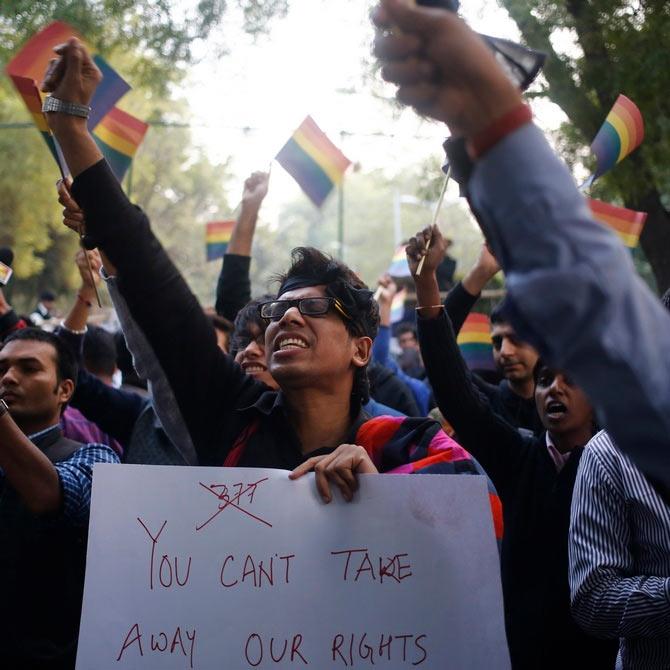
More than 80 countries treat homosexuals as criminals. Here are 10 countries that share India’s homophobic streak. The punishments for such ‘crimes’ range from stoning to death to torture.
By upholding Section 377 of the Indian Penal Code, India recently joined the ranks of over 80 countries that treat homosexuals as criminals.
In December last year, around the same time that the Indian Supreme Court effectively criminalised homosexuality, Australia's High Court overturned legislation allowing gay marriage in the Australian Capital Territory.
Earlier, the Russian Duma enacted a law that banned 'propaganda of non-traditional sexual relations' among minors making it illegal to associate in any way with LGBT activities.
The law potentially put the hundreds of athletes and tourists travelling to Russia for the Sochi Winter Olympics at risk, and was probably discussed more than Games itself.
2014 too began on a grim note for the LGBT community as Ugandan government defied international pressure and enforced anti-homosexuality laws.
Here are 10 more countries where homosexuals are criminals.

On February 24, Ugandan President Yoweri Museveni signed into law harsh measures against homosexuals in the country.
Homosexuality was already illegal in Uganda, and the new law takes makes it criminal to even talk about it in a positive light, or to fail to report homosexuals to authorities.
First time 'offenders' face a prison sentence of up to 14 years.
And those engaged in acts of 'aggravated homosexuality' can face a life sentence.
Consequently, the Netherlands, Norway and Denmark have withdrawn financial aid to Uganda's government, and the United States threatens to follow suit.
Even as the Ugandan government refused to back down, Red Pepper, a Ugandan tabloid, published a list of what it called the country's ‘top 200 homosexuals.’
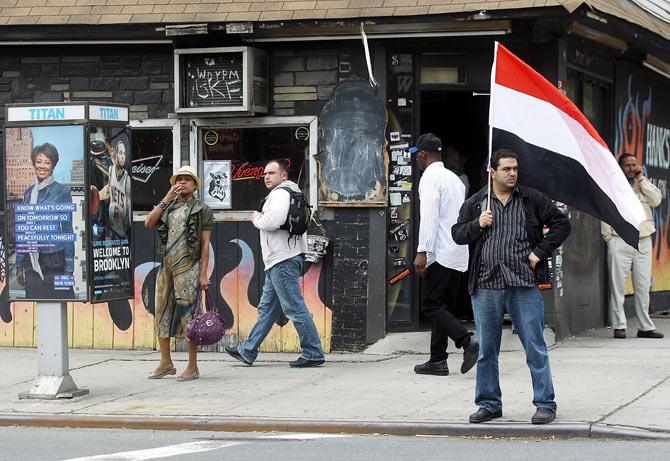
Your gender and marital status dictate what punishment you receive in Yemen.
An unmarried man engaging in homosexual activities receives 100 whiplashes as punishment, or up to one year of imprisonment.
A married man caught for the same ‘crime’ is stoned to death.
Women, irrespective of whether they are married, can be imprisoned for up to three years and if 'the offense has been committed under duress', the perpetrator can be 'punished with up to seven years’ detention'.
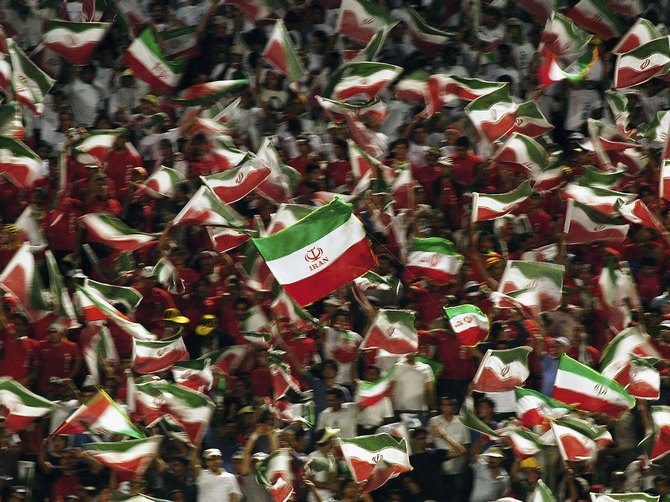
In 2007, the then Iranian president Mahmoud Ahmadinejad famously told a gathering at Columbia University there were 'no homosexuals' in Iran.
Iran’s legal system, in accordance with Sharia law, makes any sexual act outside of a heterosexual marriage illegal.
Depending upon circumstances, sodomy is punishable by death and the method of execution is left to the judge to decide if both the participants are consenting adults of sound mind.
A non-adult engaging in consensual sodomy can receive up to 74 lashes as punishment.
For lesbians, first time adult 'offenders' of sound mind are subject to 50 lashes. On the fourth occasion, the act is punishable by death.
According to Amnesty International's 2013 report, official sources acknowledged 314 executions, 'but a total of 544 were recorded'.
The report acknowledges that the true figure may be higher, primarily because homosexuals are also believed to be executed for other crimes such as rape, murder, or drug trafficking that they may or may not have committed.
However, transsexuality in Iran is legal but only if it accompanied by a sex change operation.
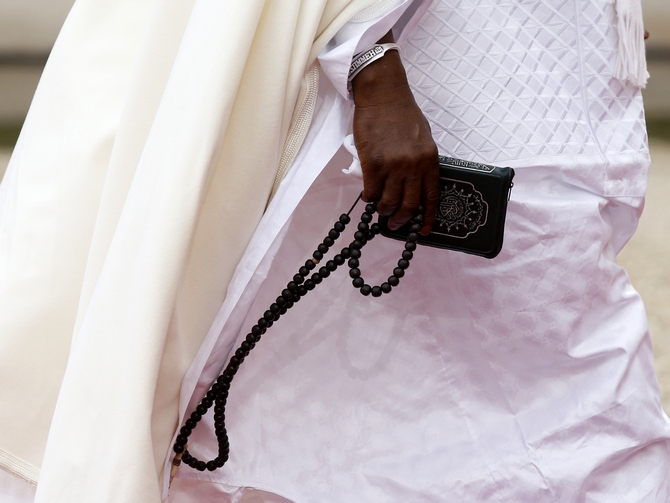
The Gambia Criminal Code, amended in 2005, makes it illegal to 'have carnal knowledge of any person against the order of nature'.
In 2008, the West African country’s President Yahya Jammeh promised not just to implement laws that were 'stricter than those in Iran' but also threatened to 'cut off the head' of any homosexual in the country.
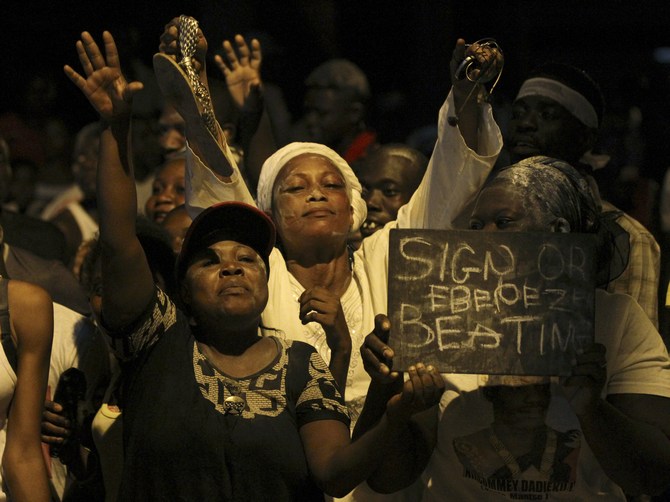
In February 2012, the late president of Ghana, John Atta Mills, said his government did not 'discriminate against homosexuality' or indulge in 'witch-hunting on homosexuality'.
That didn't stop his minister Paul Evans Aidoo to call on intelligence services to trace and arrest all homosexuals in the country.
It also hasn't stopped the country from putting homosexuals behind bars for anywhere between five and 25 years where, according to the US State Department's 2011 report, they are subject to sexual and physical abuse.
Reports of discrimination and assault outside the prison are also not uncommon.
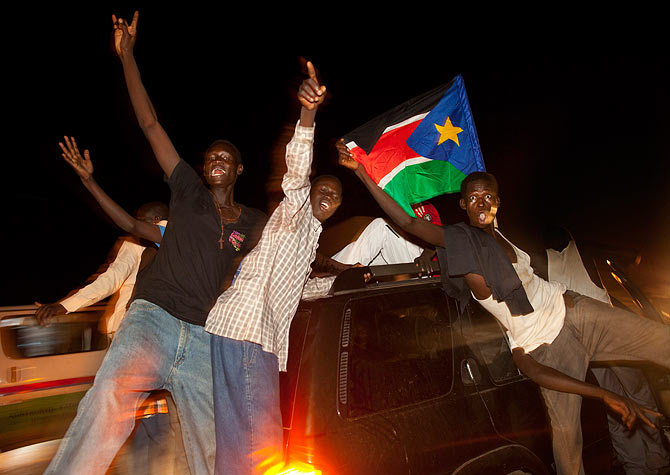
In this North African country, men convicted of homosexuality for the first time face 100 whiplashes along with a prison term of up to five years.
A third-time convict is awarded a life sentence or a death penalty.
The punishment for women ranges from 100 to thousand lashes and stoning.
In Sudan, homosexuals are also ostracised by media and the society.
The country’s gay community has taken refuge in the anonymity of the Internet and Rainbow Sudan, an online magazine for the community, is slowly gathering steam since its foundation in 2012.
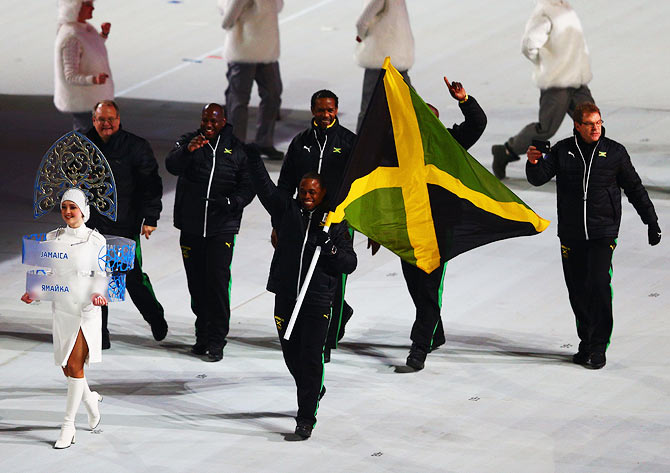
In 2006, Time magazine called Jamaica the most homophobic country on earth.
Little seems to have changed since. 'Buggery' continues a crime punishable by up to 10 years in prison and homophobia is rampant in Jamaican society.
Only last year, Dwayne Jones a young teenage crossdresser, was stabbed, shot and run over by a mob in Montego Bay.
The country's leading newspaper Jamaica Gleaner also has a homophobic slant and in 2013 through an op-ed, rubbished that one could be born gay.
Most intriguingly, female homosexuality isn't illegal; rather, it is legal by omission.
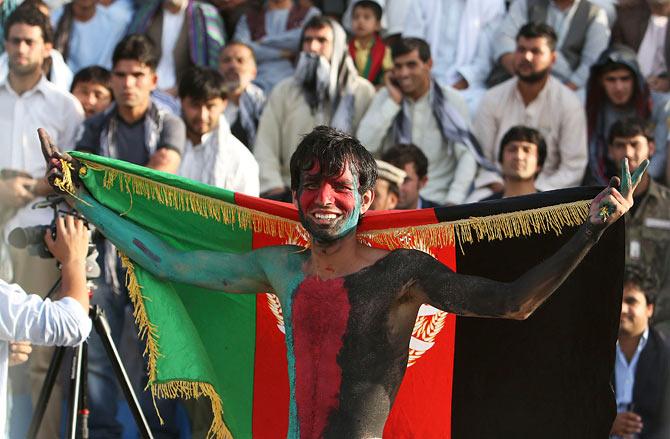
Even though homosexuality and cross-dressing are considered crimes in Afghanistan and can be punishable by death, the practice of bacha bazi or adolescent male prostitution is most popular amongst members of a militia who do not always have access to women and usually purchase sexual favours from young boys.
The practice isn't seen as being an act of homosexuality -- in part because the boys almost always assume the female role in the relationship -- but rather as an assertion of power.
Afghanistan’s society and its legal system associate homosexuality with sexual abuse and prostitution.
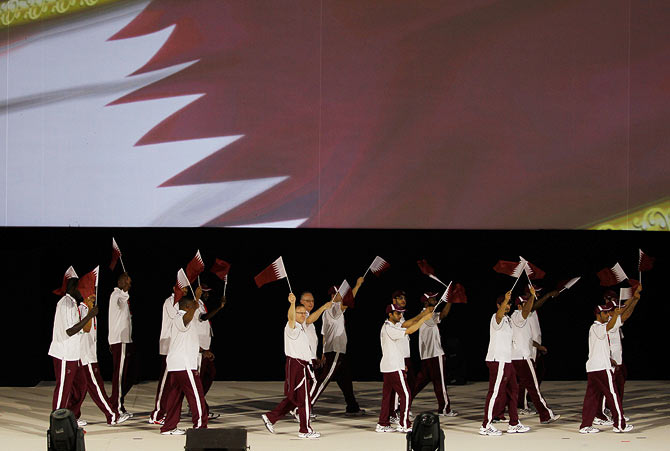
If you thought Sochi was a PR disaster for Russia thanks to its anti-gay laws, wait till 2022 when Qatar will host the football World Cup.
The oil rich emirate punishes sodomy with a prison term of up to five years and is known to have enforced the law even against non-citizens.
Homosexual workers have been prohibited from working in Qatar and women exhibiting 'masculine' traits, according to a US State Department report, are known to have been sent for 'rehabilitation' and 're-education'.
There are no known LGBT organisations in the country that offer counselling and support.
What's more, the country is embroiled in controversy after Kuwait's health minister expressed his interest to enforce mysterious 'gay tests' that aim to detect homosexuals travelling to Gulf Cooperation Council countries, of which Qatar is part.
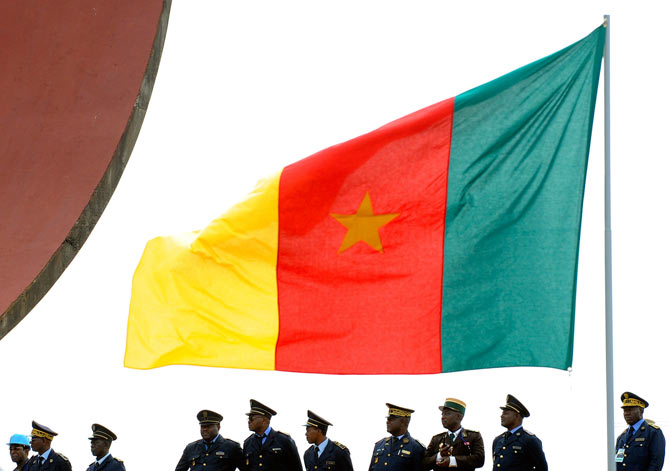
In January this year, 34-year-old Roger Jean-Claude Mbede died about a month after his family removed him from a hospital where he was being treated for hernia.
Less than a year before his death, Mbede was in prison for confessing his love to another man over a text message.
By the time of his death, his family had disowned him for having brought shame upon them.
Homosexuality in Cameroon is punishable with a fine and imprisonment of up to five years.
Mbede is the latest victim of widespread homophobia in the Central African country.
In July 2013, Eric Ohena Lembembe, a prominent LGBT activist and journalist, was found tortured and murdered inside his house. His hands and feet were burnt with a clothes iron, his feet and neck broken.
According to activists, arrests and harassment of homosexuals are common in the country.
The 2013 Human Rights Watch report pointed out that Cameroon registers more cases against people who it suspects are homosexuals than any other African country.